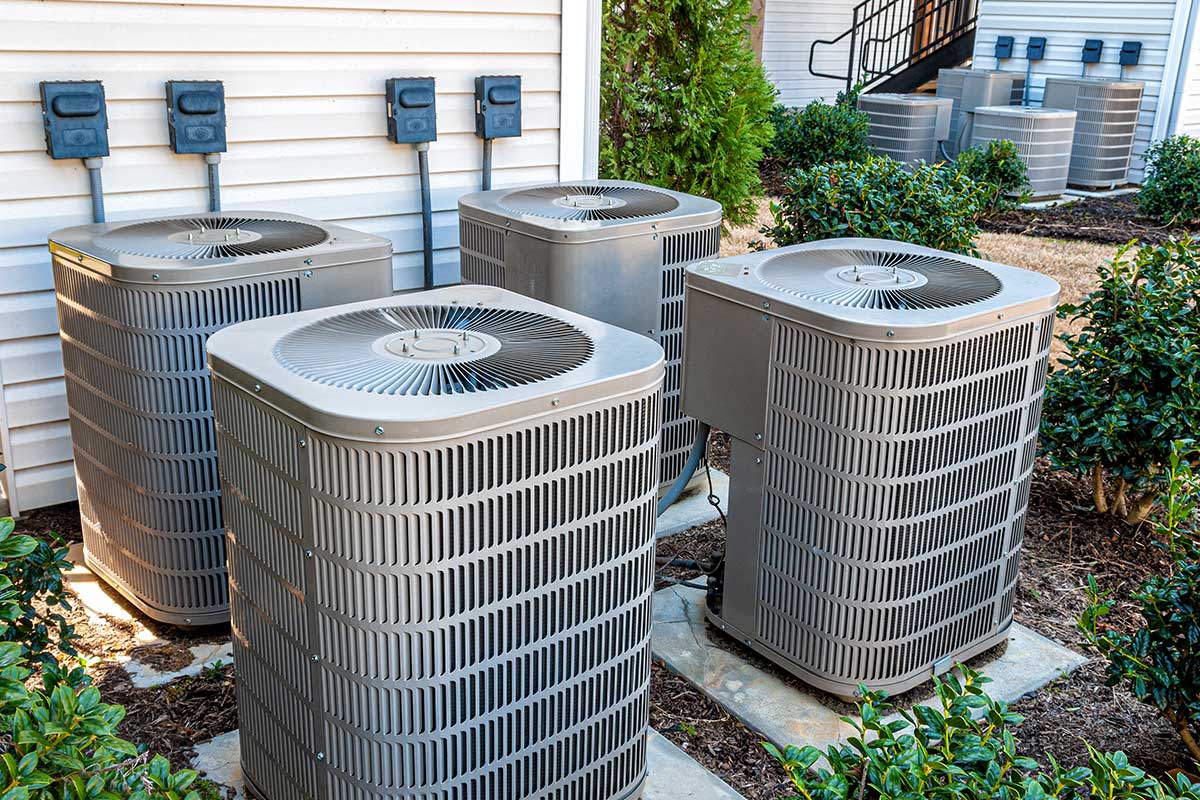Melbourne’s reputation as a city with four seasons is well-deserved. A phrase that emphasizes not just how extreme the weather can be but also how fast it can change. We often wonder whether ducted air conditioning or split system air conditioning are better options because we shelter from some of these extremes and abrupt changes in weather. We’d tell you the truth if it were a simple black or white matter, but it’s a little more complicated.
Lenny and Kenny are two different customers who come to mind here. They both have a wife and a young child, and they are in the process of renovating their houses, which includes installing new air conditioners. His spacious house is neat, uncluttered, and comfortable because he has a high disposable income ducted split It would be great to have a system that cools or heats the whole house. A modest budget is what Kenny lives on, and he enjoys a small home where he tends to spend time with his family. The main thing he wants for the living room is to keep it at a comfortable temperature.
What is Ducted Air & Split System Air Conditioning?
The Ducted Air & Split System Air Conditioning system is a form of forced air heating and cooling that has been around for many years. This type of air conditioning was first introduced in the 1940s by Carrier. The main idea behind the Ducted Air & Split System Air Conditioning system is to provide you with a comfortable temperature inside your home. It uses outside air to cool and heat your home and also uses the existing ductwork to distribute the air throughout your home.
What makes this type of air conditioning system better than others? Ducted air systems are known to be effective, reliable, and efficient. They are also known to be quiet. There are several benefits of using ducted air systems over other forms of air conditioning. One of the major reasons is that it does not require much power to operate. The ducted air system does not require an external source of electricity to work. It is also quieter than any other form of air conditioning. This is because ducted air systems do not have any moving parts. There are also several advantages of installing a ducted air conditioning system in your home. If you have ever worked in the construction industry, you will know that installing ducts in a building can be very expensive. With ducted air conditioning systems, you do not have to worry about the cost of installing ductwork in your home. Ducted air systems are designed to fit perfectly with your existing ductwork. You do not need to repair or replace any part of your existing ductwork.
Ducted Vs. Split Air Conditioning: What Are the Differences?
Installation
Air conditioning with ducts requires more effort, specialist installation, a suitable residence, and a higher upfront cost. In general, a full setup starts around the $8,000 mark depending on the size of your home. It is typically cheaper to install split systems, and they can be done room by room if the cost needs to be spread out over time. The prices for these units tend to range between $2,000 and-3,000, depending on the unit’s capabilities.
Ongoing Cost
Split systems operate on an individual basis, so their running costs can be lower than those of ducted systems. However, zoned ducted air conditioning (so that you can turn it on for individual rooms) can be beneficial for controlling where it’s running and potentially lead to lower running costs.
Effectiveness
Small and single rooms benefit greatly from split systems. A larger 8kw unit will be necessary to maintain proper cooling in a larger room. It is better to use ducted air conditioning for covering large areas and controlling a constant temperature throughout the house.
Noise
Noise issues are becoming less prevalent as technology advances. Split systems are often quiet; however, ducted air conditioning is quieter. It is typically a sign of a problem that requires maintenance when a split system is noisy.
Aesthetically
The ducted system is discrete from the outside. In addition, the outlets are flat and small and are mounted to the ceiling. In contrast, split systems have bulky, visible wall units. They both have outdoor compressor units outside the house.

